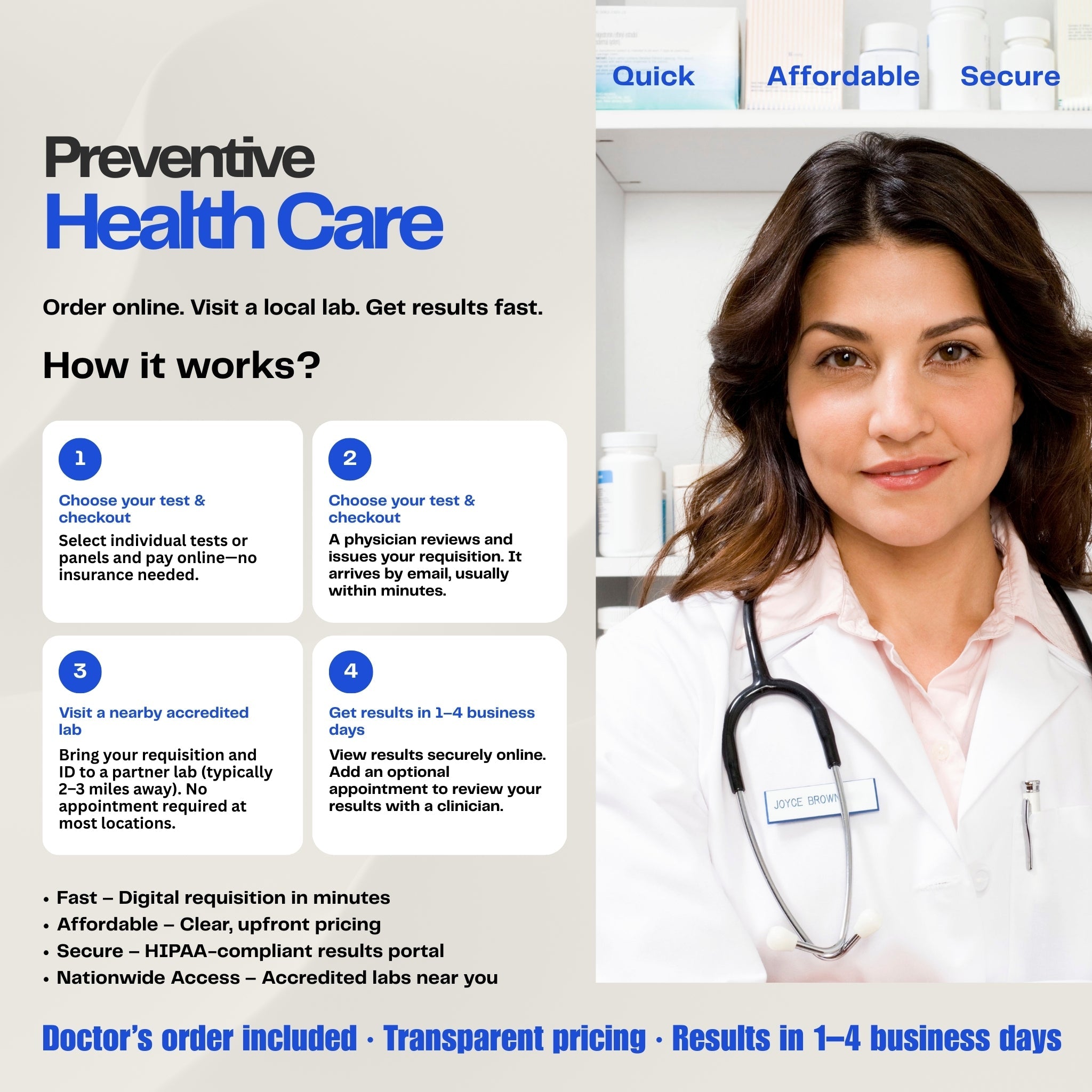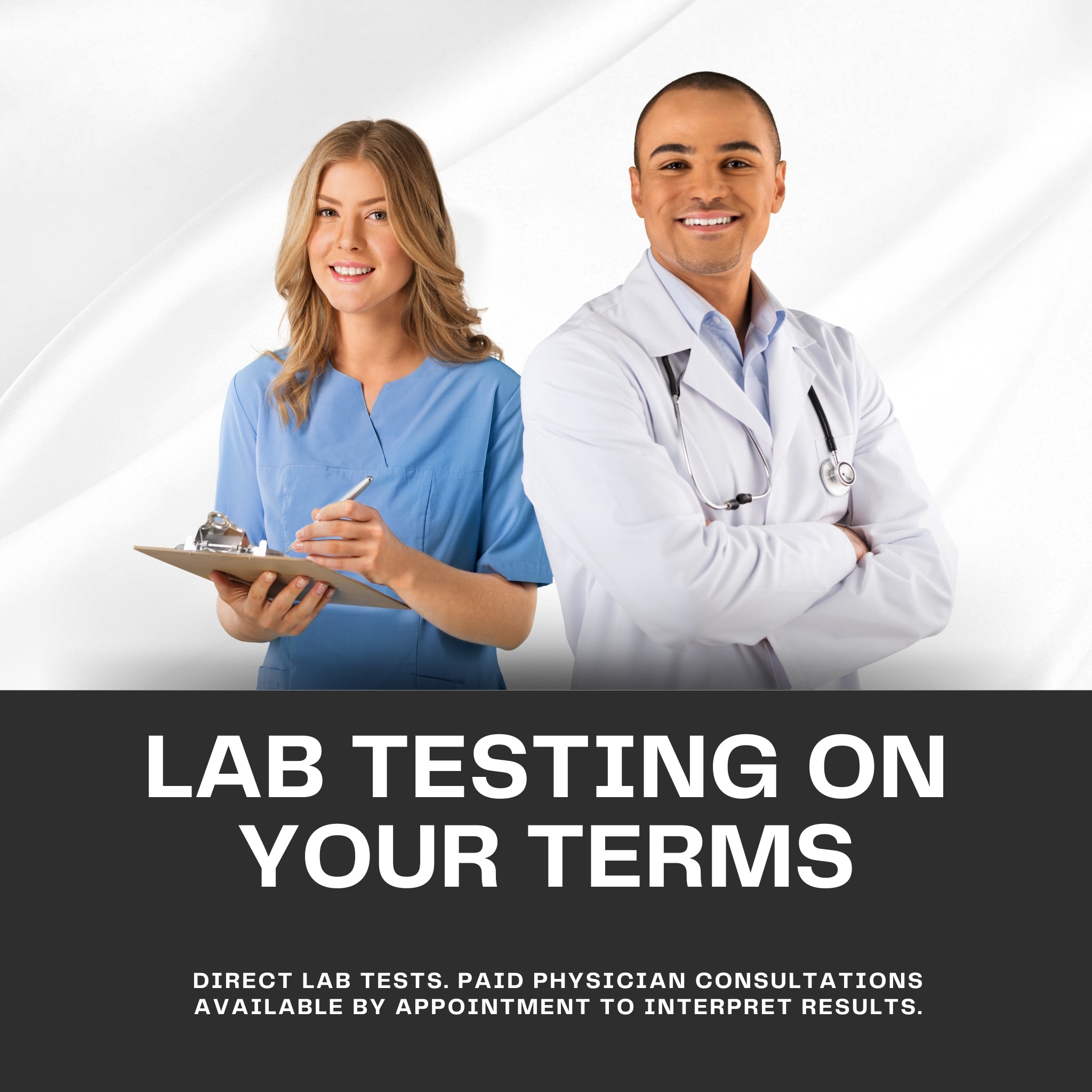

Hemoglobin (Hb) A1c With eAG
Become a member to unlock discounted pricing and exclusive perks.
Hemoglobin (Hb) A1c with Estimated Average Glucose (eAG) is a crucial test for assessing long-term blood sugar control. It measures your average blood glucose levels over the past 2-3 months, providing a comprehensive view of glycemic management. The test correlates your HbA1c result with an Estimated Average Glucose (eAG) value, offering a direct estimate of your average blood sugar in mg/dL, making it easier to understand your glucose levels. This widely accepted test is vital for diagnosing diabetes, monitoring its progression, and evaluating the effectiveness of treatment plans, endorsed by major health organizations for its accuracy and clinical utility.
Quick facts
Whole blood
2–4 business days
No Fasting Required
Licensed physician review and requisition included with every test.

How It Works?

once Test Order is received, Our physicians will review your request and email you the easy-to-follow requisition form.

Find the closest partner location—most are within 2–3 miles—and drop by for a quick, no‑appointment blood draw.

Once your sample is processed, we’ll send your report straight to your inbox within 1–3 business days. Just click the link to view your results anytime.

Have Questions about results? Book a phone or video visit with one of our doctors. They’ll walk you through your report, explain any findings, and recommend next steps





